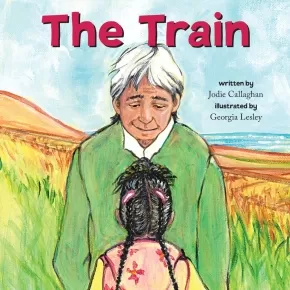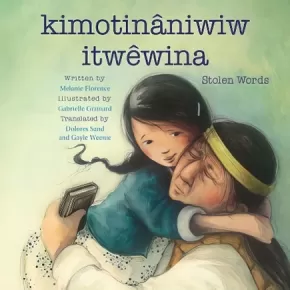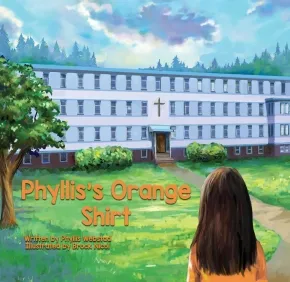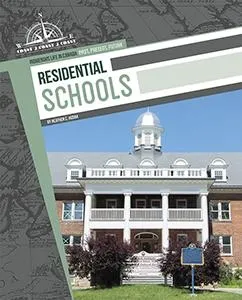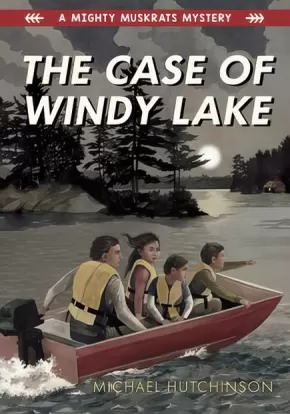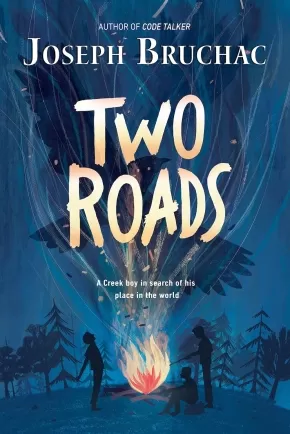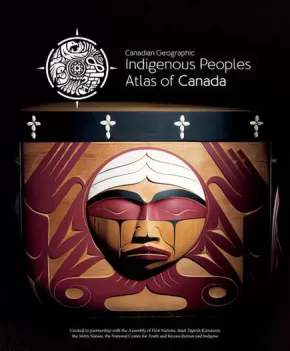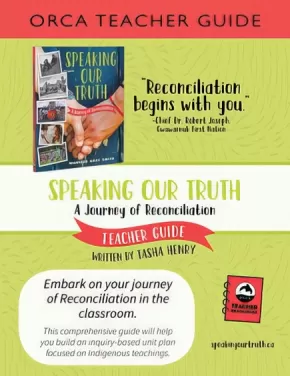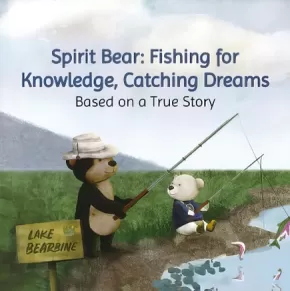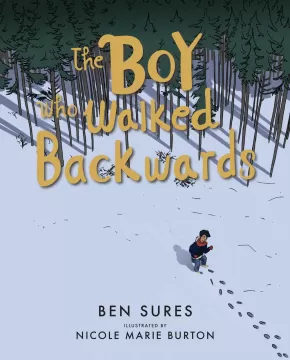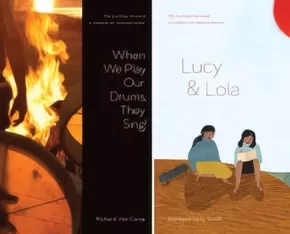
Residential Schools / Reconciliation
46
-
60
of
75 Results;
Sort By
Go To
of 5
To deepen and support your understanding of what the Indian Residential School experience was and its impact on Canada please download this document, They Came For the Children:
Click here: They Came For the Children
"Project of Heart" is an inquiry-based, hands-on, collaborative, inter-generational, artistic journey of seeking truth about the history of Indigenous people in Canada. Its purpose is to:
- Examine the history and legacy of Indian Residential Schools in Canada and to seek the truth about that history, leading to the acknowledgment of the extent of loss to former students, their families and communities
- Commemorate the lives of the thousands of Indigenous children who died as a result of the residential school experience.
- Call Canadians to action, through social justice endeavors, to change our present and future history collectively
Click here to visit the website: Project Of Heart
The Case of the Missing Auntie
$11.95
Format:
Paperback
Text Content Territories:
Indigenous Canadian; First Nations; Cree (Nehiyawak);
ISBN / Barcode: 9781772601176
Synopsis:
Synopsis:
In the bright lights of the big city, the Mighty Muskrats search for an auntie lost long ago.
The Mighty Muskrats are off to the city to have fun at the Exhibition Fair. But when Chickadee asks Grandpa what he would like them to bring back from the city, she learns about Grandpa’s missing little sister. She was, they learn, “scooped” years ago – like many Indigenous children, the government had arranged for her adoption by strangers without her parents’ permission. Now, the Mighty Muskrats have a new case to solve: to find the whereabouts of their grandpa’s long-lost sister. Once in the bright lights of the big city, the cousins get distracted, face off with bullies, meet some heroes and unlikely teachers, and experience many of the difficulties First Nations kids can face in the city. The Muskrats’ search for their missing auntie takes them all the way to the government, and reveals hard truths about their country’s treatment of First Nations kids and families.
Reviews
"The Case of the Missing Auntie is the second book in the Mighty Muskrats Mystery series and features the group visiting an Exhibition fair in the city. The Muskrats find their next mystery to solve when Chickadee learns that Grandpa’s missing sister was adopted without permission many years ago." - The Dalai Lama Center
Educator & Series Information
This is Book 2 in the Mighty Muskrats Mystery Series. Following The Case of Windy Lake, this second edition to the series follows these young sleuths as they explore the history of residential schools and the "scoops" that saw Canada take Indigenous children from their families and adopt them out to strangers.
This book introduces young people to the history of Sixties Scoop in North America and how thousands of Indigenous children were taken from their families and given to white families to be raised.
This book tells of a classic fish-out-of-water experience as the kids try and figure out the nuances of the big city.
Recommended for ages 9 to 12.
Guided Reading: V
Lexile: 670L
This book is available in French: Sur les traces de tante Charlotte: Une enquête des Rats musclés
Additional Information
192 pages | 5.25" x 7.50"
The Train
$19.95
Artists:
Format:
Hardcover
Text Content Territories:
Indigenous Canadian; First Nations; Mi'kmaq;
ISBN / Barcode: 9781772601299
Synopsis:
Synopsis:
“I’m waiting for what we lost that day to come back to us.”
Ashley meets her great-uncle by the old train tracks near their community in Nova Scotia. When she sees his sadness, he shares with her the history of those tracks. Uncle tells her that during his childhood the train would bring their community supplies, but there came a day when the train took away with it something much more important. One day he and the other children from the reserve were taken aboard and transported to residential school, where their lives were changed forever. They weren't allowed to speak Mi'gmaq and were punished if they did. Uncle tells her he tried not to be noticed, like a little mouse, and how hard it was not to have the love and hugs and comfort of family. He also tells Ashley how happy she and her sister make him. They are what give him hope. Ashley promises to wait with her uncle as he sits by the tracks, waiting for what was taken from their people to come back to them.
Awards
- Co-winner of Second Story Press's Indigenous Writing Contest in 2018
Educator Information
Recommended for ages 6 to 9 (grades 1 to 3)
The Train is an intergenerational story of healing from trauma. The legacy of abuse of North America's Indigenous peoples is something that affects all of us, and this book is another important resource to start that conversation with young people.
The Train can be empowering for children whose families and communities have lived through trauma, as they can learn about the history and that they are strong enough to carry that knowledge and be the change we need.
Subjects / Themes: Character Education: Empathy, Family, Friendship; History & Social Studies: Canadian History, First Nations and Indigenous Peoples; Reflecting Diversity.
This book is available in a dual-language (Mi'gmaq and English) format: Ga's / The Train
Additional Information
32 pages | 8.50" x 8.50" | colour illustrations | picture book
kimotinâniwiw itwêwina / Stolen Words
$14.95
Artists:
Format:
Paperback
Text Content Territories:
Indigenous Canadian; First Nations; Cree (Nehiyawak);
ISBN / Barcode: 9781772601015
Synopsis:
Synopsis:
The dual-language edition, in Plains Cree and English, of Stolen Words, the award-winning story of the beautiful relationship between a little girl and her grandfather. When she asks her grandfather how to say something in Cree, he tells her that his language was stolen from him when he was a boy. The little girl then sets out to help her grandfather find his language again.
This sensitive and warmly illustrated picture book explores the intergenerational impact of the residential school system that separated young Indigenous children from their families. The story recognizes the pain of those whose culture and language were taken from them, how that pain is passed down, and how healing can also be shared.
Educator Information
This dual-language edition is in Plains Cree and English. The translation was carried out by two Plains Cree language speakers, Dolores Sand from Muskeg Lake Cree Nation and Gayle Weenie from Sweetgrass First Nation. Language consultation and assistance was provided by the Cree Literacy Network.
Recommended for ages 6-9; Grades 1-3.
Guided Reading: Q
Lexile: 530L
Subjects: Character Education (Empathy, Family & Friendship); History & Social Studies (Canadian History, First Nations & Indigenous Peoples); Reflecting Diversity.
This resource is also available in French: Les mots voles
This resource is also available in English only as Stolen Words.
Additional Information
28 pages | 8.50" x 8.50"
Phyllis's Orange Shirt
$11.95
Artists:
Format:
Hardcover
Text Content Territories:
Indigenous Canadian; First Nations; Salish; Interior Salish; Secwepemc (Shuswap); Stswecem'c Xgat'tem;
ISBN / Barcode: 9781989122242
Synopsis:
Synopsis:
When Phyllis was a little girl she was excited to go to residential school for the first time. Her Granny bought her a bright orange shirt that she loved and she wore it to school for her first day. When she arrived at school her bright orange shirt was taken away. This is both Phyllis Webstad's true story and the story behind Orange Shirt Day which is a day for us all to reflect upon the treatment of First Nations people and the message that 'Every Child Matters'.
Educator Information
Phyllis's Orange Shirt is an adaptation of The Orange Shirt Story which was the best selling children's book in Canada for several weeks in September 2018. This true story also inspired the movement of Orange Shirt Day which could become a federal statutory holiday. A page of information about this day is included at the end of the book. A short author biography is also included.
Adapted for ages 4-6.
Recommended in the Canadian Indigenous Books for Schools 2020/2021 resource list for grades K-1 in the areas of English Language Arts and Social Studies.
This book is available in French: Le chandail orange de Phyllis
Additional Information
30 pages | 9.00" x 8.00"
Residential Schools (6 in Stock)
$31.95
Text Content Territories:
Indigenous Canadian;
ISBN / Barcode: 9781773086040
Synopsis:
Synopsis:
This book is about residential schools.
Educator Information
Juvenile Nonfiction.
Additional Information
32 Pages | Library Binding
Spirit Bear: Honouring Memories, Planting Dreams: Based on a True Story
$12.95
Artists:
Format:
Paperback
Text Content Territories:
Indigenous Canadian;
ISBN / Barcode: 9781775191490
Synopsis:
Synopsis:
Spirit Bear: Honouring Memories, Planting Dreams is the latest addition to the award-winning picture book series written by Order of Canada recipient Cindy Blackstock (Gitxsan Nation) and illustrated by Amanda Strong (Michif)!
Spirit Bear is on his way home from a sacred ceremony when he meets Jake, a friendly dog, with a bag full of paper hearts attached to wood stakes. Jake tells Spirit Bear that school children and residential school survivors will plant the hearts when a big report on residential schools called the Truth and Reconciliation Commission (TRC for short) is shared. The TRC will have Calls to Action so we can all help end the unfairness and make sure this generation of First Nations, Métis, and Inuit children grow up healthy and proud!
Educator & Series Information
Recommended for ages 6 to 12.
This book is part of the Spirit Bear series.
This book is available in French: Spirit Bear: Rendre hommage aux souvenirs, semer des rêves: Basé sur une histoire vraie
Additional Information
66 pages | 8.25" x 8.25"
The Case of Windy Lake
$11.95
Format:
Paperback
Text Content Territories:
Indigenous Canadian; First Nations; Cree (Nehiyawak);
ISBN / Barcode: 9781772600858
Synopsis:
Synopsis:
The Mighty Muskrats won’t let a mystery go unsolved!
Sam, Otter, Atim, and Chickadee are four inseparable cousins growing up on the Windy Lake First Nation. Nicknamed the Mighty Muskrats for their habit of laughing, fighting, and exploring together, the cousins find that each new adventure adds to their reputation. When a visiting archeologist goes missing, the cousins decide to solve the mystery of his disappearance. In the midst of community conflict, family concerns, and environmental protests, the four get busy following every lead. From their base of operations in a fort made out of an old school bus, the Mighty Muskrats won’t let anything stop them from solving their case!
Awards
- The Case of Windy Lake was the co-winner in Second Story Press’ 2018 Indigenous Writing Contest!
Reviews
"Chickadee's rez-tech savvy pairs well with her cousin Otter's bushcraft skills, and, along with Atim's brawn and brother Samuel's leadership, the four make a fine team. From Cree author Hutchinson, an Indigenous version of the Hardy Boys full of rez humor." — Kirkus, December 2018
"The Case of Windy Lake is a smart and thought-provoking mystery for middle-grade readers." — Foreword Reviews
Educator & Series Information
This fun and adventurous series, A Mighty Muskrat Mystery Series, puts an Indigenous spin on the classic Hardy Boys and Three Investigators books.
Recommended for ages 9-12.
Subjects & Themes: Environment (Protection, Protest); Civil Rights; Indigenous (Rights to Land, Rights to Natural Resources, Knowledge, Protection of Cultural Ceremonies).
Recommended in the Canadian Indigenous Books for Schools 2019-2020 resource list as being useful for grades 6-9 in the following subject areas: English Language Arts and Social Studies.
This book is available in French: Le Disparu de Lac-aux-Vents: Une enquête des rats musclés
Additional Information
134 pages | 5.25" x 7.50"
Two Roads (PB)
$11.99
Format:
Paperback
Text Content Territories:
Indigenous American; Native American; Muscogee (Creek);
ISBN / Barcode: 9780735228870
Synopsis:
Synopsis:
A boy discovers his Native American heritage in this Depression-era tale of identity and friendship by the author of Code Talker.
It's 1932, and twelve-year-old Cal Black and his Pop have been riding the rails for years after losing their farm in the Great Depression. Cal likes being a "knight of the road" with Pop, even if they're broke. But then Pop has to go to Washington, DC--some of his fellow veterans are marching for their government checks, and Pop wants to make sure he gets his due--and Cal can't go with him. So Pop tells Cal something he never knew before: Pop is actually a Creek Indian, which means Cal is too. And Pop has decided to send Cal to a government boarding school for Native Americans in Oklahoma called the Challagi School.
At school, the other Creek boys quickly take Cal under their wings. Even in the harsh, miserable conditions of the Bureau of Indian Affairs boarding school, he begins to learn about his people's history and heritage. He learns their language and customs. And most of all, he learns how to find strength in a group of friends who have nothing beyond each other.
Reviews
"Cal's cleareyed first-person narration drives the novel. Meticulously honest, generous, autonomous and true, he sees things for what they are rather than what he'd like them to be. The result is one of Bruchac's best books." —New York Times Book Review
"A tautly paced and compelling story of self-discovery, family, belonging, and friendship." —Horn Book, starred review
"Multiple compelling Depression-era histories converge in Bruchac's latest . . . The students' utter subversion of Challagi's mission to sever their ties with Indian culture soon becomes apparent, as does Cal's powerful, growing understanding of his identity." —Booklist
Educator Information
Recommended Ages: 10+
Additional Information
320 pages | 5.81" x 8.56"
Indigenous Peoples Atlas of Canada
$99.99
Format:
Hardcover
Text Content Territories:
Indigenous Canadian; Métis; Inuit; First Nations;
ISBN / Barcode: 9780986751622
Synopsis:
Synopsis:
Indigenous perspectives much older than the nation itself shared through maps, artwork, history and culture.
The Royal Canadian Geographical Society, in partnership with Canada's national Indigenous organizations, has created a groundbreaking four-volume atlas that shares the experiences, perspectives, and histories of First Nations, Inuit and Métis peoples. It's an ambitious and unprecedented project inspired by the Truth and Reconciliation Commission's Calls to Action. Exploring themes of language, demographics, economy, environment and culture, with in-depth coverage of treaties and residential schools, these are stories of Canada's Indigenous Peoples, told in detailed maps and rich narratives.
This extraordinary project offers Canada a step on the path toward understanding.
The volumes contain more than 48 pages of reference maps, content from more than 50 Indigenous writers; hundreds of historical and contemporary photographs and a glossary of Indigenous terms, timelines, map of Indigenous languages, and frequently asked questions. All packaged together in a beautifully designed protective slipcase.
Educator Information
Recommended for ages 13+.
The Indigenous Peoples Atlas of Canada includes a four volume print atlas, an online atlas, an app, and more!
Additional Information
322 pages | 10.50" x 12.87"
Speaking Our Truth Teacher Guide
$29.95
Format:
Paperback
Text Content Territories:
Indigenous Canadian;
ISBN / Barcode: 9781459822221
Synopsis:
Synopsis:
Speaking Our Truth: A Journey of Reconciliation is a nonfiction book for middle readers that examines how we can foster Reconciliation in an accessible way. Centered around the writings of Monique Gray Smith, this teacher guide is a comprehensive support for educators focusing on Indigenous teachings and looking to build an inquiry-based unit plan about Reconciliation. Activities such as essential questions from the author, metaphors for learning and cross-curricular plans are laid out clearly, with instructions and appropriate vocabulary for teachers and students to embark on this journey of Reconciliation together.
Educator Information
This resource helps teachers embark on a journey of Reconciliation in the classroom. The author, Tasha Henry, holds a Master of Education in Language, Culture and Teaching from York University and has been teaching for over twenty years.
Recommended in the Canadian Indigenous Books for Schools 2019-2020 resource list as being a useful Teacher Resource with regard to English Language Arts, Social Justice, and Social Studies.
Find the student resource here: Speaking Our Truth: A Journey of Reconciliation
Additional Information
46 pages | 8.50" x 11.00"
Spirit Bear: Fishing for Knowledge, Catching Dreams: Based on a True Story
$12.95
Artists:
Format:
Paperback
Text Content Territories:
Indigenous Canadian; First Nations;
ISBN / Barcode: 9781775191421
Synopsis:
Synopsis:
Spirit Bear is off on another adventure! Follow him as he learns about traditional knowledge and Residential Schools from his Uncle Huckleberry and his friend, Lak'insxw, before heading to Algonquin territory, where children teach him about Shannen's Dream.
Spirit Bear and his new friends won't stop until Shannen's Dream of "safe and comfy schools" comes true for every First Nations student.
Dear Uncle Huckleberry,
Look up at the stars tonight. If you look closely, you'll see Shannen Koostachin lighting the way.
Shannen knew that school should be a time for dreams and that every child deserves to have a safe and comfy school, a proper education, and to feel proud of who they are. Every child is sacred.
Did you know that many First Nations schools get less money from the government than other schools? Shannen knew this was wrong. And so do I.
And like my mom, Mary the Bear, always says, when we see something wrong, we need to help make things right!
Did you know that Lak'insxw means "grizzly bear" in Gitxsan language?
Educator & Series Information
Recommended for ages 6 to 12.
This book is part of the Spirit Bear series.
This resource is also available in French: Spirit Bear: pêcher le savoir, attraper des rêves : Base sur une histoire vraie
Additional Information
52 pages | 216 x 216 mm
The Boy Who Walked Backwards
$15.00
Artists:
Format:
Paperback
Text Content Territories:
Indigenous Canadian; First Nations; Anishinaabeg; Ojibway; Serpent River First Nation;
ISBN / Barcode: 9781927849491
Synopsis:
Synopsis:
The Boy Who Walked Backwards is a moving story about a young Ojibway boy, Leo, and his family in Serpent River First Nation. Leo’s life turns to darkness when forced to attend residential school. Back home for Christmas, Leo uses inspiration from an Ojibway childhood game to deal with his struggles.
Educator Information
Recommended for grades 3 and under.
This book is based on a true story about the father of one of Ben Sure's friends. Ben was entrusted to write this story by his friend.
The Journey Forward, A Novella On Reconciliation
$13.99
Artists:
Format:
Paperback
Text Content Territories:
Indigenous Canadian;
ISBN / Barcode: 9780991678266
Synopsis:
Synopsis:
Two award-winning voices.
Two stories on Reconciliation.
Two amazing covers.
One unforgettable book.
The Journey Forward, A Novella On Reconciliation:
When We Play Our Drums, They Sing!
by Richard Van Camp
This the story of 12-year-old Dene Cho, who is angry that his people are losing their language, traditions, and ways of being. Elder Snowbird is there to answer some of Dene Cho’s questions, and to share their history including the impact Residential schools continue to have on their people. It is through this conversation with Snowbird that Dene Cho begins to find himself, and begins to realize that understanding the past can ultimately change the future.
Tessa Macintosh’s wonderful photographs are featured on the cover and interior of this memorable story.
The Journey Forward, A Novella On Reconciliation:
Lucy & Lola
by Monique Gray Smith
Lucy and Lola are 11-year-old twins who are heading to Gabriola Island, BC, to spend the summer with their Kookum (grandmother) while their mother studies for the bar exam. During their time with Kookum, the girls begin to learn about her experiences in being sent — and having to send their mother — to Residential school. Ultimately, they discover what it means to be inter-generational survivors.
Award-winning illustrator Julie Flett created the amazing cover illustration and interior spot art that perfectly suit this engaging novella.
Educator Information
Recommended for Grades 5-8 for the following subject areas: English Language Arts, Social Studies.
The Orange Shirt Story
$19.99
Artists:
Format:
Paperback
Text Content Territories:
Indigenous Canadian; First Nations; Salish; Interior Salish; Secwepemc (Shuswap); Stswecem'c Xgat'tem;
ISBN / Barcode: 9780993869495
Synopsis:
Synopsis:
When Phyllis Webstad (nee Jack) turned six, she went to the residential school for the first time. On her first day at school, she wore a shiny orange shirt that her Granny had bought for her, but when she got to the school, it was taken away from her and never returned. This is the true story of Phyllis and her orange shirt. It is also the story of Orange Shirt Day (an important day of remembrance for First Nations and non First Nations Canadians).
Reviews
"The book includes a brief history of the Secwepemc people, St. Joseph’s Residential School, and a glossary and conversation starters. A must for elementary school teachers. " - Canadian Indigenous Books for Schools 2020/2021
Educator Information
Recommended for grades 2 to 5.
This resource is also available in French: The Orange Shirt Story (French) / L'histoire Du Chandail Orange
Recommended in the Canadian Indigenous Books for Schools 2020/2021 resource list for grades 1-5 in the areas of English Language Arts, Social Studies, and Career Education.
Additional Information
8.5" x 11" | 44 pages
Speaking Our Truth: A Journey of Reconciliation
$29.95
Format:
Hardcover
Text Content Territories:
Indigenous Canadian;
ISBN / Barcode: 9781459815834
Synopsis:
Synopsis:
Canada's relationship with its Indigenous people has suffered as a result of both the residential school system and the lack of understanding of the historical and current impact of those schools. Healing and repairing that relationship requires education, awareness and increased understanding of the legacy and the impacts still being felt by Survivors and their families. Guided by acclaimed Indigenous author Monique Gray Smith, readers will learn about the lives of Survivors and listen to allies who are putting the findings of the Truth and Reconciliation Commission into action.
Educator Information
Recommended for grades 4 to 8.
A teacher guide for this resource is also available: Speaking Our Truth Teacher Guide
Additional Information
160 pages | 7.50" x 9.00"
Sort By
Go To
of 5




